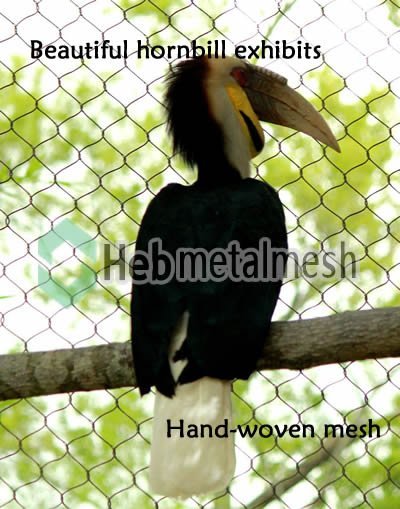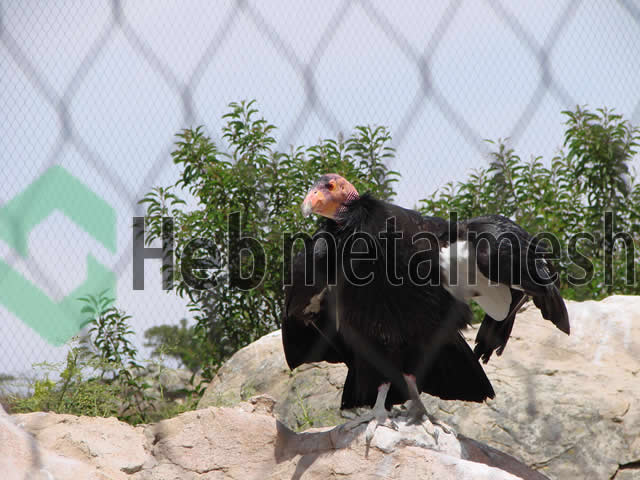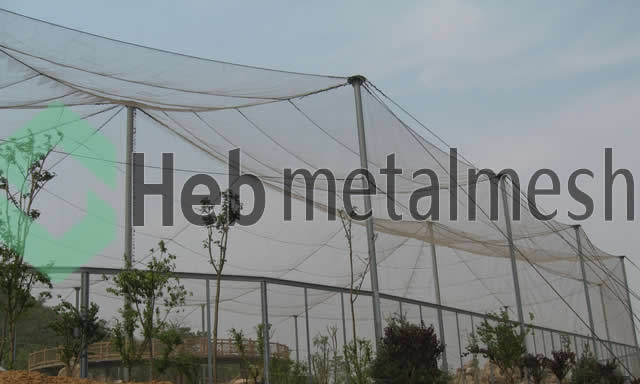Introduction to Toucan Housing
Toucans are vibrant, sociable birds known for their distinctive beaks and colorful plumage. Providing an adequate toucan cage is essential for the well-being of these avian species, particularly in a zoo or aviary setting. This housing must cater to their unique needs, ensuring both their physical health and psychological welfare. A thoughtfully designed cage not only accommodates the toucan’s size and activity level but also simulates their natural habitat, contributing to their overall happiness and longevity.
Space is one of the crucial factors when considering the design of a toucan cage. Toucans are active birds; they require ample room to fly, climb, and engage in natural behaviors. An enclosure should be spacious enough, ideally measuring a minimum of 8 feet in length, 6 feet in height, and 4 feet in depth. Larger cages are preferred, as they allow for more enriching environments and opportunities for exercise.
In addition to size, the environment inside the toucan cage must be carefully curated. Toucans thrive in temperate, humid conditions similar to those found in their native habitats. Incorporating elements such as live plants, natural perches, and water features promotes an immersive experience. Safety is another paramount consideration; using strong, non-toxic materials is vital to protect the birds from potential hazards. The design should also prevent escape and deter potential predators, ensuring a secure living space.
Creating a suitable environment for toucans not only fulfills their physical needs but also supports their mental stimulation. By understanding the requirements for toucan housing, zoos and aviaries can enhance the quality of life for these extraordinary birds, allowing them to thrive in a safe and naturalistic setting.
Understanding the Toucan’s Natural Habitat
Toucans are vibrant birds native to the tropical rainforests of Central and South America. Their natural habitats are characterized by dense vegetation, abundant food sources, and a warm, humid climate. Typically, toucans prefer the canopy level of forests where the foliage provides both shelter and a variety of fruits, a staple in their diet. This rich biodiversity creates an environment conducive to their social interactions, nesting behaviors, and foraging habits. Understanding these aspects is essential when designing an appropriate toucan cage that mirrors their wild habitat.
In their natural settings, toucans exhibit behaviors such as socializing in flocks and forming strong pair bonds, which are vital for their overall well-being. These interactions allow for activities such as vocal communication and mutual grooming, which help maintain social structures crucial for their mental health. Beyond social behaviors, toucans are agile climbers, using their long bills to maneuver through branches to access food and evade predators. Therefore, ensuring that their captive environment, such as a toucan cage, incorporates climbing structures and diverse enrichment activities is crucial. This makes it necessary to replicate their natural habitats as closely as possible.
Moreover, the temperature and humidity levels found in their native regions must also be considered in a captive setting. Toucans thrive in warmth and humid conditions, which are vital for their health and breeding success. A toucan cage designed to replicate these climatic factors will help reduce stress and promote natural behaviors among the birds. When comparing their wild ecosystems to the environments of a captive toucan cage, it becomes clear that a thoughtful approach to habitat replication plays an integral role in the well-being of these remarkable birds.
Choosing the Right Type of Cage for Toucans
When selecting a cage for toucans, it is imperative to consider various elements that contribute to the well-being of these unique birds. Toucans are not only visually striking but also highly active and social. Therefore, the appropriate cage must cater to their physical and psychological needs. The first factor to consider is the size of the cage. Toucans require ample space to move around, stretch their wings, and engage in their natural behaviors. A minimum dimension of 6 feet in height, 4 feet in width, and 4 feet in depth is recommended, although larger dimensions are always preferable.
The design of the toucan cage plays a crucial role in ensuring the birds’ comfort and safety. Cages should be constructed with durable materials that can withstand the beaks of these birds. Stainless steel or powder-coated metals are often recommended as they provide strength while being easier to clean. Additionally, the spacing of the bars should be wide enough to prevent the toucans from getting their beaks or limbs stuck, yet close enough to ensure their safety from potential predators.
Ventilation is another critical feature to consider when choosing a cage for toucans. The enclosure should allow for good airflow to prevent mold and bacteria growth that can arise in stagnant air. Options with screen or mesh panels can be beneficial. Moreover, incorporating horizontal perches and natural branches can enhance the toucan’s environment, encouraging climbing and exploration. Lastly, ensure that the cage has sufficient enrichment options, such as toys and feeding stations that are easily accessible and cater to the nutritional needs of the specific species of toucan.
By considering these essential aspects of size, design, and features, owners can create an ideal toucan cage that promotes a healthy and enriching environment for their handsome companions.
The Importance of Safety in Aviary Netting
When constructing a suitable living environment for toucans, the importance of safety should never be underestimated. The choice of aviary netting materials plays a crucial role in ensuring the well-being of these vibrant birds. Using strong and durable materials is essential to prevent any potential escapes. Toucans are naturally curious creatures and may attempt to find their way out of an inadequately secured cage. Hence, selecting high-quality netting that can withstand both the physical activity of the birds and environmental elements is of utmost importance.
Additionally, the use of non-toxic materials in the construction of a toucan cage cannot be overlooked. Toucans have a tendency to peck and nibble on surfaces within their reach, and if the netting or any associated materials contain harmful chemicals, it could lead to serious health issues. This highlights the need for careful consideration when choosing netting options that promote safety without compromising the birds’ health.
Another significant aspect of safety is protecting toucans from potential predators. In a situation where the aviary is located outdoors, proper netting can serve as a barrier against various threats, such as neighborhood cats, raccoons, or even larger birds of prey. Indeed, a well-designed toucan cage should provide not only secure enclosure but also the necessary peace of mind for the caretakers.
Furthermore, UV stability is an essential consideration when selecting netting materials for outdoor aviaries. Prolonged exposure to sunlight can deteriorate certain netting types, leading to fragility over time. Opting for materials that are specifically designed for outdoor use, which can resist the degrading effects of UV rays, ensures longevity and reinforces the safety of the enclosure.
Recommended Zoo Aviary Netting Options
When designing a suitable toucan cage, selecting the right aviary netting plays a pivotal role in ensuring the comfort and safety of these vibrant birds. The primary options for zoo aviary netting typically vary in material, mesh size, and overall durability. By analyzing these options, pet owners and zoo professionals can choose the most effective netting for their specific needs.
One of the most commonly recommended materials is polyethylene, known for its excellent resistance to UV light and weather elements. Polyethylene netting is lightweight yet highly durable, making it ideal for outdoor aviary settings. A 1-inch mesh size is generally recommended for toucan cages, as it prevents smaller animals from accessing the enclosure while allowing for adequate airflow and visibility. Notable manufacturers of polyethylene netting include Bird Barrier, which offers high-quality options designed specifically for exotic bird enclosures.
Another excellent choice is nylon netting, which boasts a slightly higher tensile strength than polyethylene. Nylon netting is often preferred for larger aviaries due to its ability to withstand pressure and potential wear from birds. However, it is essential to ensure that the mesh size is also appropriate; a 1-inch to 2-inch mesh size is advisable for toucans, striking a balance between protection and comfort. Netting Superstore features a variety of nylon netting options that can be tailored to fit different cage sizes, providing both durability and flexibility.
For those seeking a more natural aesthetic, wood and metal frame enclosures may incorporate aviary netting made from stainless steel wire. This type of netting provides robust security, deterring even the most determined predators. Although it may be more expensive, companies such as Aviary Network produce stainless steel netting that combines functionality with an elegant design suitable for toucan cages.
Choosing Wire Mesh for Your Toucan Exhibit
When designing a suitable toucan cage, the choice of wire mesh is crucial for ensuring the safety and well-being of these vibrant birds. Various types of wire mesh are available, and selecting the right one involves careful consideration of factors such as hole size, gauge, rust resistance, and durability. Each of these aspects plays a significant role in the enclosure’s overall effectiveness.
First, the hole size of the wire mesh is vital. For toucan cages, a mesh with smaller holes is recommended to prevent the birds from escaping and to keep out potential predators. A hole size of around 1 inch is generally appropriate. However, it is essential to balance safety with ventilation; the mesh must still allow for ample air circulation to promote a healthy environment within the exhibit.
The gauge of the wire is another key factor to consider. A heavier gauge means stronger, more durable wire that can withstand the toucans’ beaks and any potential chewing behavior. Typically, a gauge between 14 and 12 offers sufficient strength while remaining manageable for installation. A good rule of thumb is to opt for thicker wire if the toucan enclosure is located in an area prone to extreme weather conditions or if larger birds may share the space.
Rust resistance is essential for any wire mesh used in a toucan cage, as the presence of moisture can lead to corrosion and structural failure. Choose galvanized wire or stainless steel mesh, as these materials offer superior rust resistance, ensuring the longevity of your aviary. You can find suitable wire mesh options from reputable manufacturers, garden centers, or specialized suppliers of aviary materials. Always review the specifications and seek advice from professionals if unsure of the best choice for your toucan exhibit.
Creating Enrichment and Comfort in the Toucan Cage
Creating a suitable environment within a toucan cage is essential for the mental and physical well-being of these vibrant birds. Toucans are highly intelligent creatures that thrive on mental stimulation. Therefore, providing various types of enrichment within their cage is vital. This can take the form of climbing structures, perches, and interactive toys that encourage natural behaviors.
Climbing structures are particularly important, as toucans are naturally inclined to soar and explore their surroundings. Ropes, ladders, and branches made from safe, durable materials can be integrated into the cage design. These elements should vary in height and texture to encourage toucans to engage in climbing and aerial acrobatics, which are critical for their physical health and exercise.
Perches also play a key role in a toucan’s comfort. Select perches of varied widths and materials to mimic the natural environment. Fabricated materials like untreated wood, as well as natural branches, can provide a comfortable space for resting and sleeping. Positioning these perches at different levels will contribute to a more dynamic environment, allowing the toucans to choose their preferred resting spots.
In addition to climbing and perching opportunities, introducing toys to the toucan cage can significantly contribute to their enrichment. For example, foraging toys that can be filled with treats can stimulate natural hunting behaviors, while hanging toys that encourage beak and foot interaction will help prevent boredom. Rotating toys regularly keeps the environment fresh and engages the toucans with new challenges.
Careful arrangement of these elements is equally important; ensuring that there is enough space for toucans to move freely is crucial. Avoid overcrowding the cage, as this may lead to stress or territorial disputes. Ultimately, a well-thought-out combination of climbing structures, perches, and stimulating toys leads to a comfortable and enriching environment for toucans to flourish.
Maintenance and Care of Toucan Cages
Proper maintenance and care of toucan cages are critical for ensuring the health and well-being of these vibrant birds. A clean and well-maintained environment minimizes stress and potential health issues, fostering a suitable habitat for toucans. Regular cleaning protocols should be established, focusing not only on the cage itself but also on the surrounding areas. Daily spot-cleaning of excrement and uneaten food helps to keep the habitat sanitary. A thorough cleaning should be performed weekly, involving a complete wash of the cage surfaces using bird-safe cleaning solutions to eliminate bacteria and prevent the buildup of harmful pathogens.
In addition to regular cleaning, routine inspections of the toucan cage are essential. Caregivers should check for any signs of wear and tear, particularly in aviary netting or wire mesh, as these materials are crucial for the safety and security of the birds. Any fraying or damage should be attended to immediately to prevent escape or injury. Inspecting perches, feeders, and water containers should also become part of the maintenance routine, as these items can harbor bacteria or become damaged over time, posing health risks to the toucans.
Furthermore, ensuring that the toucan cage is adequately enriched with natural wood branches, perches, and toys can greatly enhance the birds’ psychological well-being. Over time, toys and perches can wear out, thus regular replacements are necessary to maintain an engaging environment for the toucans. Providing appropriate nesting materials that are changed regularly is another aspect of care that contributes to their overall comfort and health. By adhering to these maintenance practices, zoos and aviaries can create optimal conditions for toucans, allowing them to thrive in captivity.
Conclusion: Creating the Ideal Living Space for Toucans
Establishing a suitable environment for toucans in captivity is paramount for their health and overall well-being. Throughout this guide, we have emphasized the essential elements that contribute to the creation of a perfect toucan cage. The focus has been on utilizing high-quality materials and thoughtful designs that cater specifically to the needs of these vibrant birds.
Firstly, it is vital to consider the size of the cage. Toucans are active and social creatures that require ample space to move around, explore, and engage in natural behaviors. A well-designed toucan cage should provide adequate room for climbing, flying, and playing. Choosing aviary netting that allows for ventilation and natural sunlight while ensuring safety from predators is equally important.
Moreover, the interior setup of the cage should incorporate a variety of perches, branches, and enrichment items that stimulate the toucan’s curiosity and encourage exercise. The use of non-toxic materials is crucial to ensure that the toucan is not exposed to harmful elements. Additionally, maintaining a clean environment through regular cage maintenance will significantly contribute to the long-term health of these birds.
Investing in quality materials for the cage and aviary netting is an investment in the life and happiness of your toucan. Such consideration not only enhances their living conditions but also allows for a more fulfilling interaction between the birds and their caregivers. Ultimately, by focusing on the needs of the toucan, one can create an ideal living space that respects their natural habitat and fosters a healthy, active lifestyle. Hence, a carefully planned and constructed toucan cage can make a substantial difference in the quality of life for these beautiful avian species.


